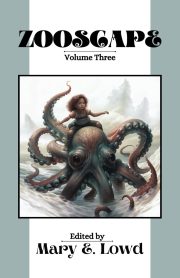Life Plus 70
by Ethan Ellenberg
 I’m sure you recognize the provenance of that title—current Copyright law grants authors a term of the author’s life plus seventy years.
I’m sure you recognize the provenance of that title—current Copyright law grants authors a term of the author’s life plus seventy years.
It’s an extraordinary grant by any measure, and I can’t think of anything comparable in patents or any other system that governs intellectual property.
Copyright, however, is only part of what governs the working lives of authors. Far more consequential are the actual contracts and licenses authors enter into, which, as a practical matter, are the real governors of their creative and financial lives.
In ‘the old days,’ when, for the most part, an author’s only recourse was a print book publishing contract with an established book publisher, there weren’t a lot of choices to make. Your income was tied to the success of your book that was in the hands of a traditional book publishing company. When it went out of print, its active life was essentially over.
More choices emerged as authors and their agents gained power and agents began selling translation and movie rights on the author’s behalf, in addition to negotiating the book publishing agreements seeking better terms and fostering competitive bidding.
Now we are in a whole new world. There are different ways to be published and author incomes are coming from a far wider range of sources. The standard book agreement that routinely grants the mainstream book publisher a license for the ‘term of copyright’ has to be re-considered. If an author can make more money, have more control, and work with many more customers–career decisions are more attractive, but also more complex and consequential.
The first issue to consider is whether mainstream book publishers will consider altering their traditional demand for a license that exists for the term of copyright. There’s no reason for optimism here, but Authors should start thinking about this. It won’t change without awareness and effort. I don’t like to use the word fair, but is it in an author’s interest to license their work for the rest of their life plus 70 years? Wouldn’t a change in this contractual term be hugely significant?
Beyond the term of license itself, one has to consider the Out of Print clause and the behavior of the publishers adjudicating it. I won’t explore all the intricacies at this time, and there has been good progress in this area, but more needs to be done. When small quantities of ebooks or a translation license are the only things keeping a book ‘in print’ and hence not eligible for reversion to the author per the terms of the agreement, things need to change. Publishers have to be more responsive to Out of Print requests. They also need to be more flexible in application of the rules. Books that are no longer performing for them should not go through long periods of decay as they age out, but should be reverted to their authors.
Additionally, as a traditional book contract ages, the original subsidiary rights granted to the publisher should be eligible for reversion, even if the book itself is in print. Whatever the subsidiary rights are, if they are moribund in the publisher’s hands, they should be eligible for reversion to the author.
Beyond what I believe are healthy, necessary changes in the basic terms offered by traditional book publishers, authors need to continue to evaluate the new paradigms that are available to them. These paradigms are already successful and there is reason to believe they will be even more so in the future.
Authors can self publish and having retained all the subsidiary rights, license rights to their books to audio publishers, foreign publishers and film/t.v. companies. There are challenges here to be sure, but the self publishing paradigm has been proven successful and the most successful self published authors have sold their rights in all these other formats. Here is where there is a radical change in the legal status of an author’s rights.
If they publish an ebook there is often no term of license and the author can change his/her plans at will. Audio licenses vary in length, with licenses of 3, 5, 7 and 10 years being common. Translation licenses also vary in length, with licenses also of 3, 5, 7 and 10 years. With talent available world wide, authors can commission their own audio books and translations.
Breakthroughs in print on demand technology may someday soon see printed books available inexpensively at all kinds of locations including coffee shops and salons.
To recap, there are a number of key ideas here that every author should be cognizant of in all of his/her dealings:
–Copyright is life + 70. Your work is protected, its value will last longer than your lifetime. Plan for it.
–Non-traditional publishing, retained rights, re-sale of reverted rights, and monitoring your publisher are essential. The active life of your book is no longer a year or two and you are key to managing this part of your career, whether you work with an agent or not.
Authors need to organize all their contracts and licenses and realize they are in the intellectual property business, and not just book authors. With ebooks easy to publish and Audio rights in demand, the opportunities are ongoing and inheritable.
•••
Ethan Ellenberg is President of the Ethan Ellenberg Literary Agency and founder of Royalty Reminder, a SAAS (software as a service) company that helps authors store, manage, and monetize their intellectual property.


